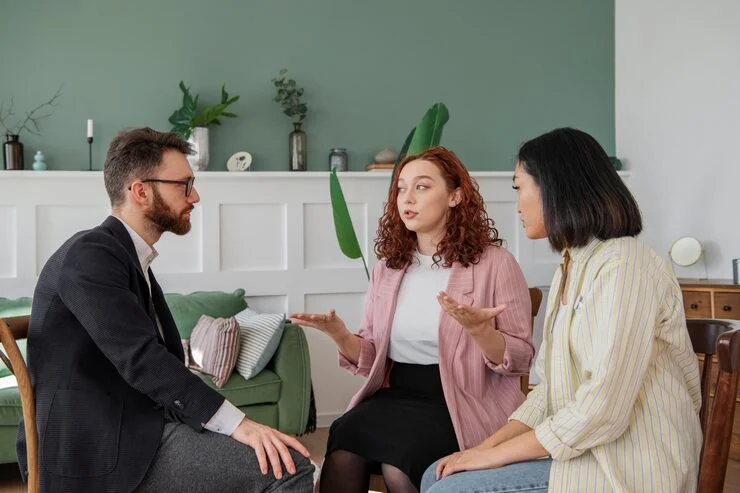If you’re preparing for an Oxbridge interview, you already know that it’s one of the most important and challenging hurdles in your academic career. Oxford and Cambridge aren’t just looking for candidates with excellent grades; they want to see how you think under pressure, how you engage intellectually, and how you handle complex problems. The interview process is designed to assess your intellectual potential, problem-solving ability, and how you interact with ideas in a live setting.
At Pearl Lemon Academy, we understand that acing the Oxbridge interview isn’t just about knowing the right answers; it’s about demonstrating your thought process, your ability to engage in academic discussions, and your overall intellectual curiosity. We’ve worked with countless students to prepare them for this pivotal moment, helping them feel confident and ready to impress.
Keep reading for a detailed breakdown of how to prepare and perform well during your Oxbridge interview. If you need personalized guidance, schedule a consultation with us today.
Why the Oxbridge Interview is Different

Before diving into preparation, it’s essential to understand why the Oxbridge interview stands out from other university interviews. While most universities will be content to discuss your personal statement and ask you about your extracurricular activities, Oxbridge interviews go a step further. They’re about intellectual engagement and critical thinking.
Unlike interviews at other universities, Oxbridge interviews are designed to resemble tutorials—mini academic discussions that are challenging and interactive. They’re less about “right” answers and more about how well you can articulate your thoughts, think through problems, and handle unfamiliar questions.
Talk to our Specialist
Preparing for Your Oxbridge Interview: The Essentials

The preparation for an Oxbridge interview needs to be strategic and precise. Here’s how to get started:
1. Know Your Subject Inside and Out
You may have excellent grades, but that won’t be enough if you can’t demonstrate a deep understanding of the subject you’re applying for. Your Oxbridge interview will likely contain subject-specific questions that test your knowledge, so your first step is to master the basics.
- Review your syllabus and expand your knowledge beyond the textbook. Oxbridge interviewers want to see that you can engage with advanced concepts and demonstrate intellectual curiosity.
- Key phrases 1: Get comfortable with technical terms and their practical applications.
- Key phrases 2: Brush up on any major theories or methodologies specific to your course.
2. Mock Interviews: Practice is Key
Mock interviews are one of the most effective ways to prepare. They not only help you become familiar with the format but also reduce anxiety by simulating the real experience.
- Practice with peers, tutors, or through professional services.
- Record yourself answering questions to evaluate your body language, tone, and pacing.
Schedule a consultation with Pearl Lemon Academy to book personalized mock interviews customized to your Oxbridge application.
Understanding the Oxbridge Interview Questions

Oxbridge interview questions can be divided into a few key categories. The more you know about the structure of these questions, the better you can prepare.
Academic or Subject-Specific Questions
These questions are meant to test your understanding of your field of study. You’ll need to show that you can think critically about core topics and engage with complex ideas.
Sample Question:
“Explain the concept of entropy in thermodynamics and its significance in modern science.”
Sample Answer:
“Entropy is a measure of disorder or randomness in a system. In thermodynamics, it’s used to describe the amount of energy in a system that is unavailable to do work. Its significance is pivotal in the second law of thermodynamics, which states that the total entropy of an isolated system can only increase over time, leading to the concept of irreversibility in natural processes.”
Problem-Solving Questions
Expect questions that challenge you to apply your knowledge to unfamiliar situations. Oxbridge interviewers are looking for the process you use to arrive at a solution, not just the answer itself.
Sample Question:
“How would you approach the problem of designing a more efficient way to store renewable energy?”
Sample Answer:
“To design a more efficient storage system, I would start by evaluating existing technologies like lithium-ion batteries or compressed air energy storage. I’d analyze their limitations in terms of energy density and costs and find innovations in supercapacitors, or possibly even research into new materials for energy storage. I would also factor in scalability and the environmental impact of production and disposal.”
The Do’s and Don’ts of the Oxbridge Interview

Being prepared is crucial, but how you conduct yourself during the interview can also make a huge difference. Here’s what you should do—and what you should avoid.
Do’s
- Think aloud: Oxbridge interviewers want to see how you think. Don’t just give a polished answer—talk through your reasoning and engage with the interviewer’s thoughts.
- Stay confident but humble: You may not always know the answer immediately. The interview is a conversation, not a test.
- Practice good body language: Sit up straight, make eye contact, and avoid fidgeting.
Don’ts
- Don’t memorize answers: Oxbridge values spontaneity and intellectual engagement over scripted responses. Stick to your voice.
- Don’t be defensive: If you’re challenged by the interviewer, view it as an opportunity to showcase your ability to handle critical feedback.
- Don’t panic: If you don’t know the answer to a question, admit it. You’re allowed to say you don’t know—but show that you’re thinking critically about how you’d approach the problem.
Book a call with us to discuss strategies that will help you confidently tackle Oxbridge interview questions.
Answering Abstract or Unconventional Questions

Oxbridge interviewers often ask abstract or seemingly offbeat questions to see how you respond under pressure and whether you can think creatively.
Sample Question:
“If you could have dinner with any historical figure, who would it be and why?”
Sample Answer:
“I would choose Albert Einstein. Not only for his groundbreaking work in physics, but also for his philosophical insights into the nature of reality. I’d ask him how he dealt with his intellectual struggles and how he approached problems when the answers seemed elusive.”
What These Questions Show
These questions are less about getting a ‘correct’ answer and more about how you handle ambiguity and think critically about the unknown. They also give interviewers a glimpse into your interests and personality—Oxbridge values curious minds who are passionate about their field.
Body Language, Communication, and Presentation Tips

How you carry yourself in the interview matters just as much as the content of your answers. Here are some important body language tips for Oxbridge interviews:
Key Tips for Communication
- Project confidence: Even if you’re nervous, try to remain calm and composed.
- Be concise: While Oxbridge interviewers value intellectual findings, they also appreciate clear communication.
- Engage with the interviewer: Make sure your responses are thoughtful and engaging, not monologues.
Key Tips for Body Language
- Eye contact: Maintain steady eye contact without staring. This shows that you’re engaged and confident.
- Posture: Sit up straight, and avoid slouching. This communicates that you’re focused and present.
- Hand gestures: Use your hands to emphasize points, but don’t overdo it.
Connect with us today!
What to Expect on the Day of the Interview

The big day is here, and the interview is approaching fast. Here’s how you can stay calm and collected on the day of your Oxbridge interview:
- Arrive early: Make sure you arrive well ahead of time to avoid any unnecessary stress.
- Prepare your materials: If your interview is online, ensure your equipment works and your background is tidy. If it’s in-person, know your route and have any documents ready.
- Stay calm: Remember that the interviewers want to see how you think, not how you perform under pressure. Practice relaxation techniques like deep breathing if you start to feel nervous.
Schedule a consultation today to receive personalized coaching that helps you manage your interview nerves and performance.
Why Choose Us?
At Pearl Lemon Academy, we don’t just prepare you for your Oxbridge interview—we help you master the entire application process with confidence and precision. Here’s why students choose us:
- Personalized Guidance: We understand that every Oxbridge applicant is unique. That’s why our approach is customized specifically to your strengths, challenges, and the course you’re applying for.
- Proven Track Record: Our students have successfully managed the competitive Oxbridge admissions process, achieving impressive results. We equip you with the skills and mindset to stand out.
- Expert Interview Preparation: The Oxbridge interview can be daunting, but with our coaching, you’ll be able to engage in intellectual discussions, handle tough questions, and showcase your critical thinking skills with ease.
- Detailed Support: From your personal statement to final interview prep, we support you at every step of your journey to Oxbridge. We don’t just give advice—we guide you through each phase, ensuring you’re fully prepared.
- Confidence Increase: We not only help you develop the right skills but also build the confidence to present yourself at your best. Our support ensures you enter the interview room calm and ready to impress.
Ready to take the next step in your Oxbridge journey? Schedule a consultation with us today to get started.
FAQs
Q: How many Oxbridge interviews can I expect?
The number of interviews depends on your chosen subject and college. Typically, you may have one or more interviews.
Q: What’s the best way to deal with unexpected questions?
Stay calm, think aloud, and engage with the question as an intellectual challenge. Don’t worry about getting the ‘right’ answer immediately.
Q: How important is my personal statement in the interview?
Your personal statement is critical, as it’s a way for interviewers to assess your academic interests and motivation. Be prepared to discuss it in detail.
Q: What should I wear to my Oxbridge interview?
Wear something professional but comfortable. While Oxbridge doesn’t require a suit, presenting yourself in a polished manner is essential.
Q: How long do Oxbridge interviews last?
Oxbridge interviews typically last between 20 to 40 minutes, depending on the subject. The interview will focus on your intellectual abilities, your approach to problem-solving, and your enthusiasm for the subject.
Q: Will I be asked to solve problems during the interview?
Yes, you may be given academic problems or thought experiments related to your subject. The goal is not necessarily to get the “right” answer, but to show how you think critically and approach complex issues.
Q: Should I ask questions during my interview?
Yes, asking thoughtful questions at the end of your interview can show your genuine interest in the subject and the college. Just ensure your questions are relevant and demonstrate intellectual curiosity.
Final Thoughts: Getting Ready for Success
To truly stand out in your Oxbridge interview, you need to focus on more than just the facts. The key is to show your intellectual curiosity, problem-solving ability, and passion for your subject. Focus on these core elements during your preparation, and you’ll be ready for anything the interviewers throw your way.
At Pearl Lemon Academy, we offer personalized coaching and mock interviews designed to help you succeed. Our experts are ready to help you refine your answers, practice critical thinking, and master the Oxbridge interview process.Book a call with us now and start preparing with the support you need to get into Oxford or Cambridge.

